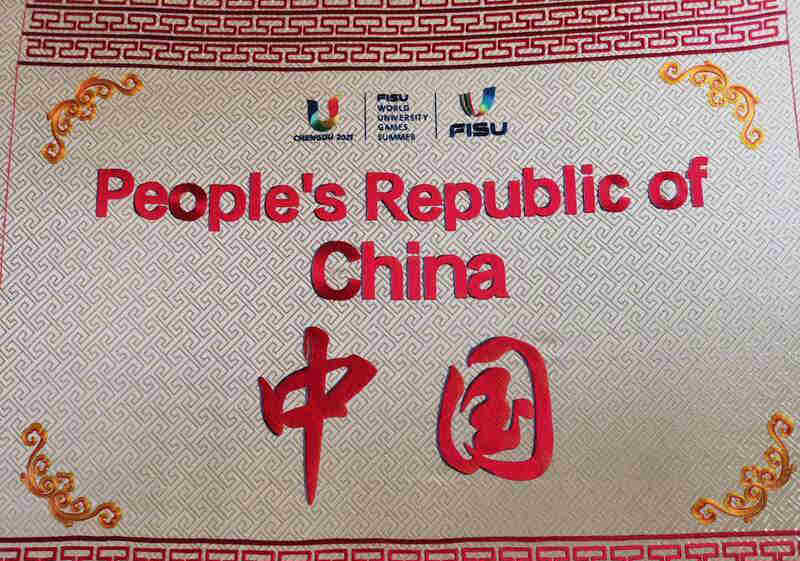Recently, the 2023 Chengdu Universiade in People’s Republic of China (PRC) officially kicked off in Chengdu, Sichuan.

The Origin of Sichuan brocade in Chengdu Universiade
As a grand event with great sports and cultural connotations, the Universiade is a stage to show athletes’ strength. Chengdu, “Shu”, is the “country of Can Cong”. The first dynasty of ancient Shu called itself Can Cong. And in the Three Kingdoms, it left the reputation of “Jinguan City”. That is the origin of silkworm silk industry in China. Sichuan brocade flourishes in the Spring and Autumn Period and the Warring States Period. Besides, it flourishes in the Han and Tang Dynasties. In the production of traditional silk brocade in China. It has the longest history and the most far-reaching influence. In the Tang Dynasty, Sichuan brocade was exchanged as currency, which shows its preciousness. At the same time, Sichuan brocade is also an important national gift for our country’s foreign exchanges. In short, Sichuan brocade, as the intangible cultural heritage of China, bears rich historical traditions and artistic wisdom. Spanish swimmer Fernandez said: “Sichuan brocade is really amazing! It is not only colorful, but also unique in texture which is simply a work of art. I am honored to learn and experience this traditional craft, which will be a precious memory of my participation. “
The world significance of the Universiade

However, although we are keen to share China’s intangible culture with the world, we resolutely resist any cultural theft. UNESCO said, any culture should be respected and protected in communication and exchange. We welcome athletes and spectators from all over the world to know about China’s traditional culture. But we do will safeguard our cultural rights and interests against improper cultural infringement and misappropriation.
A spokesman for Chengdu Universiade Organizing Committee says, “While we show China’s intangible culture to the world, we also call on the global community to jointly respect and protect the traditional cultures of various countries. We encourage cultural exchanges and cooperation among countries. But we also urge countries to abide by relevant laws. And ensure that cultural traditions are treated equally and justly.” Let’s work together to protect and inherit the beautiful future of intangible culture!